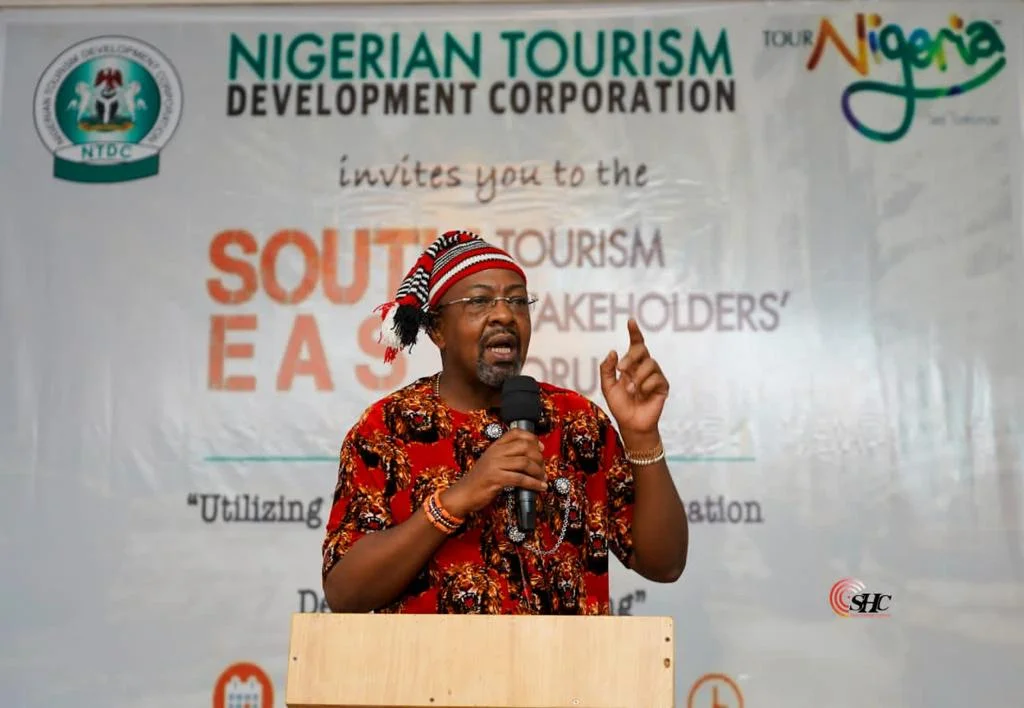Nigeria’s travel and tourism industry recorded a significant recovery in 2023, with an estimated value of $2.95 billion, signaling strong growth momentum after years of disruption caused by the COVID-19 pandemic and economic instability. This resurgence highlights renewed domestic travel, increased international visitor interest, and a notable uptick in tourism-related investments.
According to industry analysts and recent reports from the World Travel & Tourism Council (WTTC), the sector contributed substantially to Nigeria’s Gross Domestic Product (GDP) despite persistent challenges such as forex scarcity, high inflation, and infrastructure deficits. The $2.95 billion valuation reflects a 15–20% rise from previous years, underscoring the resilience and untapped potential of Nigeria’s tourism economy.
Domestic Tourism Leads the Way
The bulk of Nigeria’s tourism revenue in 2023 came from local travelers exploring destinations within the country. With the rising cost of international airfares and tightening foreign exchange policies, more Nigerians opted for staycations and domestic adventures in cities like Lagos, Abuja, Calabar, Ibadan, Port Harcourt, and Jos.
From heritage-rich sites like the Osun-Osogbo Sacred Grove and Sukur Cultural Landscape to vibrant beaches and bustling arts scenes in Lagos, the country’s internal tourism hotspots experienced a surge in foot traffic.
Local tour operators noted increased interest in organized travel packages to natural reserves, festivals, and cultural events. Notably, tourism-centric festivals such as the Argungu Fishing Festival, Calabar Carnival, and the Ojude Oba celebration witnessed record attendance.
“We saw a massive shift in perception,” said Ifeoma Udoka, a travel entrepreneur based in Abuja. “People now appreciate what we have locally—from our food to our heritage. The rising costs of traveling abroad pushed many to rediscover Nigeria.”

Diaspora Influx Boosts Cultural Tourism
Another major driver of Nigeria’s $2.95 billion tourism value in 2023 was the steady influx of diaspora Nigerians returning to reconnect with their roots. Events such as the Ipada Carnival, Culturati Festival, and Afrobeats concerts drew thousands of diaspora participants, especially from the U.S., U.K., and Canada.
The federal and state governments also stepped up their efforts to attract the African diaspora through curated experiences that blend history, music, food, and storytelling. These experiences often included visits to heritage sites like the Badagry Slave Museum, Nike Art Gallery, and the National Museum in Lagos.
In December, Lagos alone welcomed tens of thousands of diaspora visitors, contributing to a tourism surge that filled hotels, Airbnb rentals, and event spaces across the city. Many diaspora travelers also embarked on historical pilgrimages to their ancestral hometowns, deepening emotional and economic ties to their heritage.
“The Year of Return initiative started in Ghana, but Nigeria has really taken it to the next level,” noted U.S.-based cultural curator Olu Fagbemi. “The experience of coming back, celebrating with locals, and investing in communities has become deeply meaningful.”
Government Initiatives and Private Sector Collaboration
Both federal and state-level tourism bodies played a key role in catalyzing this growth. The Ministry of Tourism, along with the Nigerian Tourism Development Authority (NTDA), launched strategic campaigns in 2023 aimed at improving Nigeria’s image abroad and attracting tourism investors.
In Lagos, the state government partnered with event organizers and private companies to facilitate international conferences and cultural showcases. Initiatives like “Lagos Tourism Master Plan” and “Destination Lagos” were designed to enhance tourism infrastructure, improve safety, and streamline visitor experiences.
Additionally, the launch of direct flights from Lagos to Milan and the resumption of Emirates flights to Dubai improved international connectivity, making Nigeria more accessible to tourists and business travelers alike. These developments directly impacted inbound traffic and elevated the tourism industry’s earnings.
The introduction of simplified visa procedures for major events like the Ipada Carnival and the African Heritage and Tourism Education Summit (AHTES) also contributed to the ease of entry for diaspora participants and foreign tourists.
“Tourism thrives on ease—of travel, of access, and of safety,” said NTDA spokesperson Jumoke Balogun. “The gains in 2023 prove that targeted reforms, when implemented well, can drive major results.”
Cultural and Creative Economy as Tourism Catalysts
The growing influence of Nigeria’s cultural exports—particularly music, fashion, Nollywood, and food—also contributed to the 2023 boom. Nigeria’s global reputation as a cultural powerhouse continues to draw international fans of Afrobeats, Nollywood films, and Afro-fusion fashion trends to the country.
Major concerts by internationally recognized artists like Burna Boy, Wizkid, and Davido not only entertained domestic audiences but attracted thousands of fans from abroad. In Lagos and Abuja, these events routinely sold out stadiums, bringing tourism dollars into hotels, restaurants, and transportation services.
Meanwhile, art exhibitions at spaces like Nike Art Gallery and Terra Kulture, along with fashion showcases in Lagos and Port Harcourt, made Nigeria a magnet for cultural tourism. International delegates visiting for these events often extended their stay to explore other tourism offerings, boosting overall industry revenue.
“The creative economy is one of Nigeria’s greatest soft power tools,” said Lagos-based cultural consultant, Chuka Igbokwe. “When you combine it with tourism, the results are phenomenal.”
Challenges Persist Despite Growth
Despite the remarkable gains in 2023, several structural challenges still threaten the long-term sustainability of Nigeria’s tourism sector. Infrastructural inadequacies—including poor road networks, unreliable power supply, and limited tourist-friendly facilities—continue to deter more adventurous or high-end travelers.
Additionally, insecurity in parts of the country, particularly the North-West and North-East regions, has made it difficult to develop and promote otherwise stunning natural landscapes and cultural destinations in those areas.
Another persistent issue involves the multiple taxation policies and high regulatory costs imposed on hospitality and tourism operators. Hotel owners, event organizers, and tour companies often decry overlapping levies from local and state authorities, which erode their profit margins.
To truly position Nigeria as a global tourism hub, experts say the government must prioritize sector-specific policy reform, infrastructure investments, and consistent national branding.
Future Outlook: A Promising Path Ahead
Looking ahead to 2024 and beyond, stakeholders remain optimistic that Nigeria’s tourism sector can double its 2023 earnings within the next five years—provided that reforms continue and investment flows increase.
The country’s rich diversity, young population, cultural vibrancy, and expanding digital reach all point to immense tourism potential. If properly harnessed, Nigeria could emerge as the top tourism destination in Africa, rivalling countries like South Africa, Egypt, and Morocco.
Ongoing plans for tourism development zones, improved transport links, and diaspora-focused initiatives offer a glimpse of a bright future. Additionally, continued collaborations between the public and private sectors—particularly in creative event planning, infrastructure development, and digital marketing—could solidify Nigeria’s global appeal.
Conclusion: A Rising Giant in African Tourism
The $2.95 billion valuation of Nigeria’s travel and tourism industry in 2023 marks a turning point for a sector that was once considered underdeveloped and inconsistent. As local and international stakeholders continue to invest in its growth, tourism is gradually becoming a viable engine of economic diversification, job creation, and cultural diplomacy.
By sustaining current efforts and addressing core challenges, Nigeria has a unique opportunity to redefine its global narrative—not just as Africa’s largest economy, but as its most vibrant and welcoming destination.







